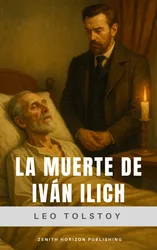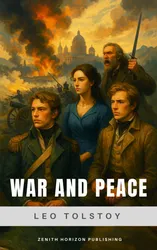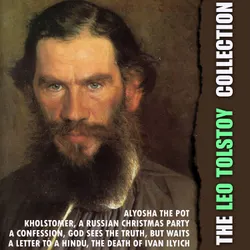Serving on the jury at a murder trial, Prince Nekhludoff recognizes in a prostitute accused of murder the peasant woman Katusha Maslova, whom he had seduced ten years earlier, causing her ruin. As the prince faces the consequences of his actions, he decides to give up his life of wealth and luxury to devote himself to rescuing Katusha, even if it means following her into exile in Siberia. Oppressed by guilt, he works to save the woman and, with her, his own soul. Resurrection, Tolstoy's last great novel, is inspired by an actual judicial affair, which is above all a reflection on the inevitability of evil, on the universal injustice of suffering, to which man can oppose only the prospect of individual redemption. Such as the one Katusha and Nekhludoff will find, each in his own way. Creating a vast panorama of Russian life, from peasants to aristocrats, bureaucrats to convicts, Resurrection reveals Tolstoy's magnificent storytelling powers.
Resurrection : Unabridged Edition
Catégories associées

Sevastopol Tales
Leo Tolstoy
book
The Definitive War Novels Collection: 6 Novels and Stories from George Orwell, Leo Tolstoy, Homer, & More
George Orwell, Frederic Manning, Homer, Leo Tolstoy, Stephen Crane
audiobook
The Essential Classics: Volume 4 : War and Peace; Nicholas Nickleby; Silas Marner; Mansfield Park; & Dubliners
Jane Austen, Leo Tolstoy, Charles Dickens, George Eliot, James Joyce
audiobook
Ana Karenina : Una Obra Maestra del Amor, la Pasión y el Destino en la Alta Sociedad Rusa
Leo Tolstoy, Zenith Horizon Publishing
book
The Complete Novels and Novellas of Leo Tolstoy
Leo Tolstoy, Zenith Horizon Publishing
book
Anna Karenina
Leo Tolstoy
book
La muerte de Iván Ilich : Reflexión profunda sobre la vida y la muerte
Leo Tolstoy, Zenith Horizon Publishing
book
The Death of Ivan Ilyich : Leo Tolstoy's Profound Meditation on Mortality
Leo Tolstoy, Zenith Horizon Publishing
book
War And Peace : Leo Tolstoy's Epic Historical Masterpiece
Leo Tolstoy, Zenith Horizon Publishing
book
Anna Karenina : Leo Tolstoy's Epic Tale of Love, Betrayal, and Society
Leo Tolstoy
book
The Leo Tolstoy Collection : Alyosha the Pot, Kholstomer, A Russian Christmas Party, A Confession, God Sees the Truth, But Waits, A Letter to a Hindu, The Death of Ivan Ilyich
Leo Tolstoy
audiobook
War and Peace : A Monumental Masterpiece of Russian Literature and Historical Insight
Leo Tolstoy, Zenith Golden Quill
book
